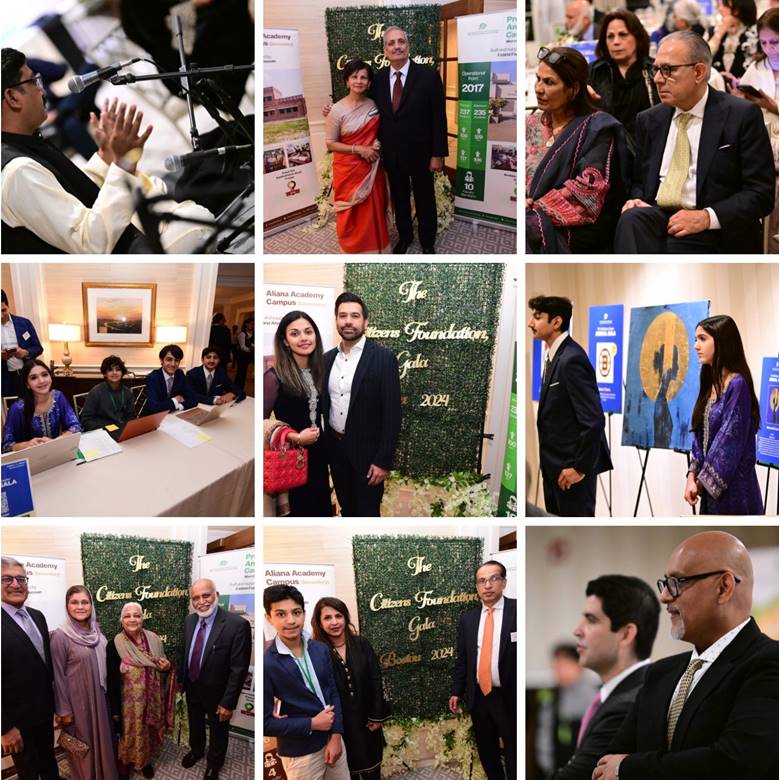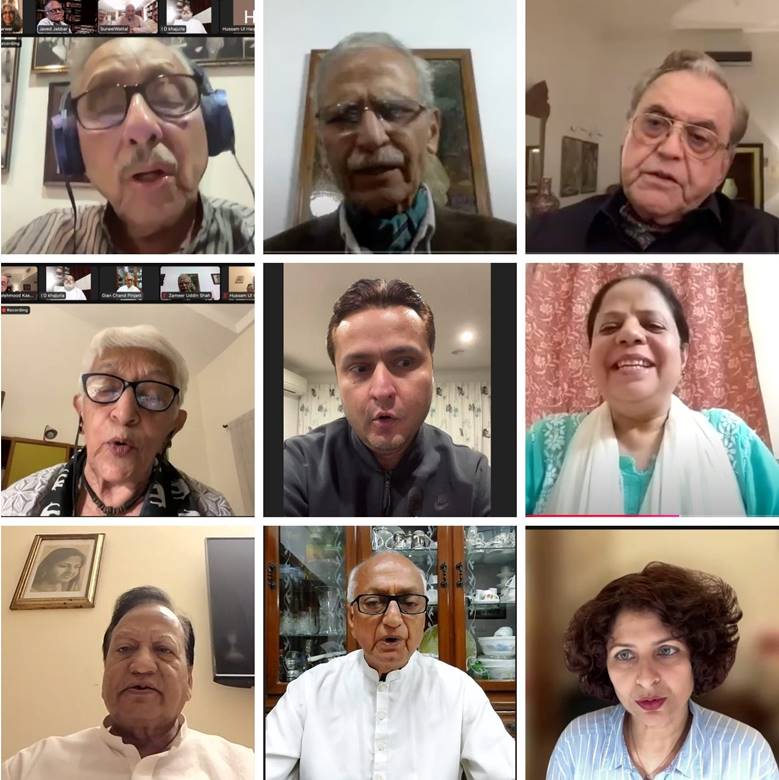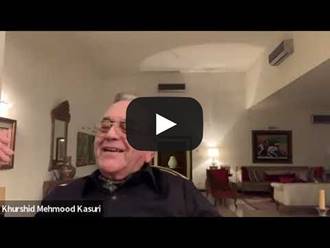Dr Shashi Buluswar - Photo by Bobby Guliani
How Can India and Pakistan 'Win without Fighting'?
By Beena Sarwar

"By now you will have got the bad news," said the keynote speaker. "I'm Indian".
There was laughter and warm applause from the largely Pakistani or Pakistani-origin audience.
Not only was it not 'bad news', but the speaker's support for the cause he was advocating for, beyond borders and boundaries, was even more appreciated because of his Indian origin.
Going by the media - and social media - you'd think we all hate each other. Not true.
Dr Shashi Buluswar is a scientist and entrepreneur at University of California, Berkeley, originally from Kolkata, with a passion for sports. He has been on the Indian rowing team and was a goalkeeper at college in Indiana. In 1997, he started playing cricket on Sundays in Chicago, initially the only Indian among Pakistanis.
Their discussions and the bonds they built, overcoming a lifetime of distrust, led to a project that would consume Buluswar for the next few years: a documentary on the 'Giants' cricket team. He even quit his corporate job at McKinsey to complete it.
Passion projects
Released in 2007, 'Leg Before Wicket' is a gripping feature-length documentary featuring the stories of Giants members who become such a close-knit team that "national identities don't matter anymore" as Buluswar says in the film. These stories are interlaced with interviews with Partition survivors, religious and political leaders, as well as ordinary people in both countries, including in the contested valley of Kashmir.
It was this passion project that took Buluswar to Pakistan for the first time in 2005, and when he visited a school run by The Citizens Foundation. In his words, he "fell in love" with this nonprofit for community education started in 1995 by a small group of public-minded entrepreneurs.
His relationship with TCF has continued over the years, which is how he came to be the first Indian to address TCF Boston's annual fundraising gala. Speaking at an event at the Wellesley Country Club last Saturday, Buluswar termed TCF as one of the "top three NGOs in the world" and the "single most effective in education".
He doesn't say this lightly. Over the years, he has advised and analysed over a hundred of the world’s leading NGOs working on health, education, food security, human rights, and other pressing issues.
The 200-seater hall was packed almost to capacity. The organisers exceeded their goal of raising USD 200,000 by $50,000, thanks to the generosity of the guests - physicians, lawyers, educators, and young volunteers.
The Citizens Foundation annual fundraiser, Boston: The room that raised a quarter million to transform lives through education in Pakistan - Photo by Bobby Guliani/ Corporate Photographers
Most were from Pakistan. Some were from India. No one could tell the difference, and no one cared. It's only ‘back home’ that we are not allowed to meet across borders.
"We're from India," physicians Najmuddin Patwa and Fehmida Chipty told Buluswar after his talk. They are looking for ways to implement a project on education near Mumbai where they were born.
Learning from TCF Pakistan: Dr Fehmida Chipty telling Shashi Buluswar about the education project she and spouse Dr Najmuddin Patwa want to start near Mumbai - Photo by Beena Sarwar / Sapan News.
"We’d like to use the TCF knowledge base to help guide this project," says Dr Chipty.
Technology of course circumvents the stringent visa restrictions between India and Pakistan that restrict such cross-border cooperation and collaboration. But there is no substitute for face-to-face meetings.
The event ended with another unifying cultural element across the region - qawwali, in this case, by Hamza Akram Qawwal & Brothers, grandsons of the revered Munshi Raziuddin Qawwal of the Delhi gharana from Hyderabad.

Some of the committed volunteers behind the TCF Boston fundraiser. Photos by Bobby Guliani/corporatephotographers.info
Peacemongers unite
Coincidentally, that morning I had participated in an online forum on "Improving Indo-Pak Relations", hosted by the Center for Peace and Progress, a voluntary trust based in Buluswar's hometown Kolkata. The Center's founder and chief trustee is O.P. Shah, a veteran 'peacemonger' (my word for those fighting for peace) and retired accountant.
OP Shah and A S Dulat - India Pakistan peace forum, screenshot
Shah sahib founded the monthly Parlance magazine in 1977, which he published and edited until 1993, when he started the Center. This voluntary organisation on principle accepts no money from any government, state or foundation. One of its initiatives is a book titled 'In Pursuit of Peace: Improving Indo-Pak Relations', published in 2021. A new edition is in the works, for which I have submitted an essay focusing on the need to take a regional approach on all matters rather than focusing on India-Pakistan.
This is the thinking behind the Southasia Peace Action Network , or Sapan, a voluntary organisation launched in March 2021 with the participation of around 90 individuals. Nearly 100 organisations have endorsed the Sapan Founding Charter, along with hundreds of individuals.
Eminent speakers at the online India-Pakistan forum last Saturday included Pakistan's former foreign minister Khurshid Kasuri and former information minister Javed Jabbar, India's former ambassador Mani Shankar Aiyar and Lt Gen Zamiruddin Shah, a member of the India-Pakistan Soldiers' Initiative for Peace (IPSI), among others. Activist Lalita Ramdas also joined - she is a Sapan founder member, along with her and her late spouse Admiral 'Ramu' Ramdas who was also an IPSI member.
In his 40 years of military service, Lt Gen Shah said he has "seen a lot of bloodshed, shed for nothing". He stressed the need to "win without fighting" and to win "peace and economic development".
Both countries, he said, must "stop meddling in each other's internal affairs"

Some of the speakers at Saturday's India-Pakistan dialogue organised by the Center for Peace and Progress, Kolkata – Screenshots
There was a consensus on the importance of allowing people to meet across borders, revive dialogue and sporting ties -- including cricket -- as well as SAARC, the South Asian Association for Regional Cooperation, and cooperate on all matters, especially the environment.
Former spymaster A. S. Dulat in Delhi, a city worst-hit by the current smog, underscored the last point in his remarks. Senior journalist Imtiaz Alam of the South Asia Journalists Association in Lahore, a city also massively affected by the smog, reinforced this point.
Air Quality Index, 18 Nov 2024: Top 15 worst cities for AQI include Delhi and Lahore along with several other Southasian cities - Source: https://www.iqair.com
Having been in "the secret world" Dulat feels there is a need to be open about peace efforts and move away from the "Track 2 racket" as he termed it. His acclaimed book 'The Spy Chronicles' co-authored with his Pakistani counterpart Asad Durrani (Harper Collins, 2018), was a groundbreaking publication.
Mani Shankar Aiyar, candid and courageous as ever, countered the slogan 'cricket and terror can't go together' calls Pakistan "India's most important neighbour" and urged India to improve ties with all its neighbours.

Why can't Pakistan-India ties be modelled on Aiyar's relationship with his old friend Javed Jabbar, a self-proclaimed "chauvinist and narrow-minded Pakistani" -- they disagree on almost everything "yet we are the closest of friends" as Aiyar said.
This requires maturity.
The ability to agree to disagree and to continue dialogue despite disagreements is something our leaders need to learn.
(Beena Sarwar is founder editor of Sapan News Network. This is her occasional column.
Note on Southasia as one word: Like Himal Southasian, we use ‘Southasia’ as one word, “seeking to restore some of the historical unity of our common living space, without wishing any violence on the existing nation states”. Sapan News Network)

